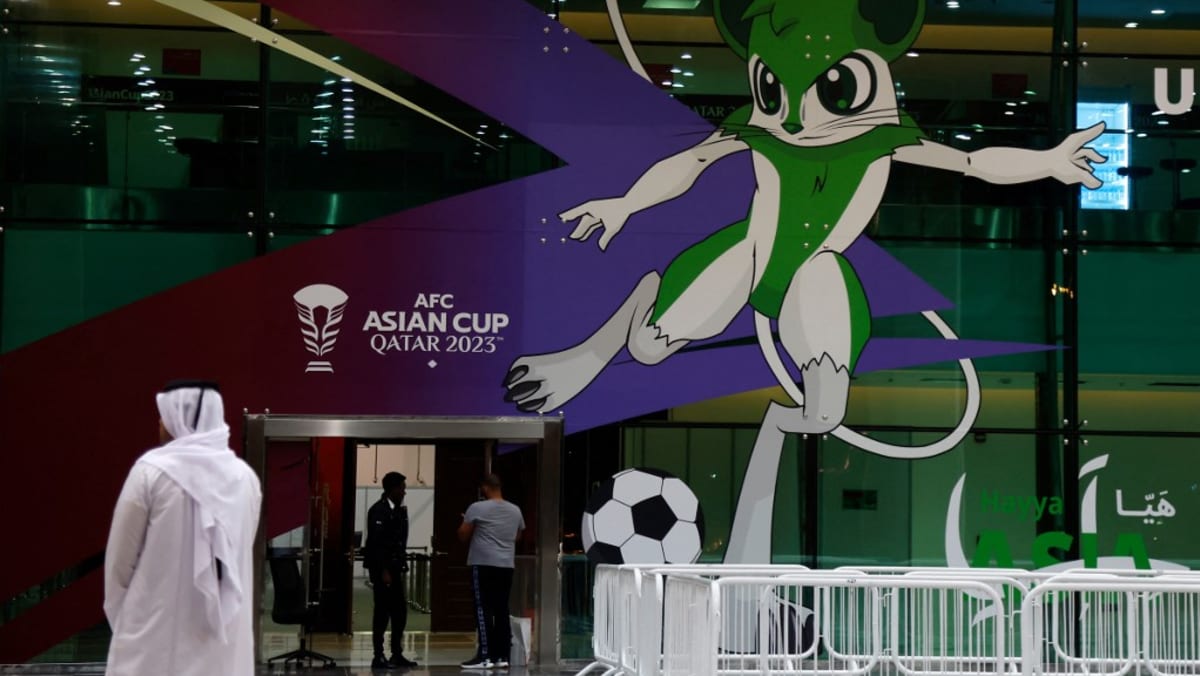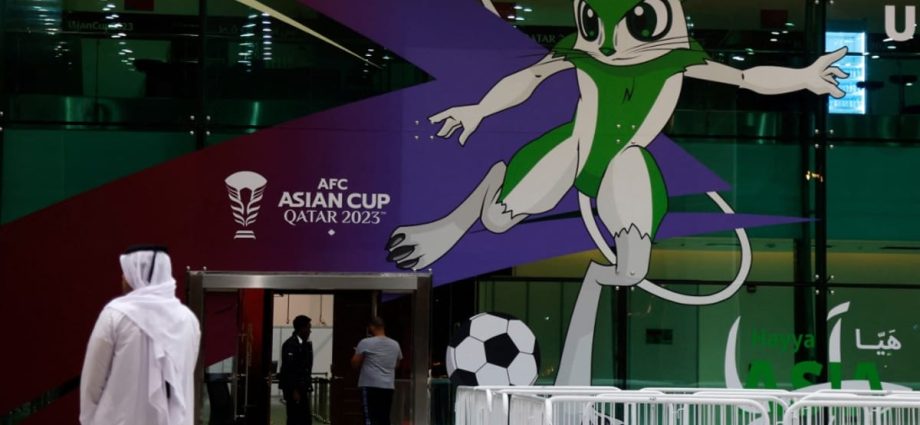
WHEN FOOTBALL AND POLITICS MIX
At the 2022 World Cup, Qatar established itself as a reliable host capable of successfully delivering events, a focal point for communicating a vision of Arab unity and a legitimate, trustworthy member of the international community. Officials in Doha will no doubt be seeking to do more of the same, especially given recent turbulence in the Middle East.
Over the last few years, Qatar has engaged in diplomacy between the United States and Taliban government in Afghanistan, arranged a hostage swap involving Iran and the United States, and been instrumental in negotiating the release of Gaza hostages in the Israel-Hamas war.
At the Asian Cup, Qatari officials will need to deploy their soft power and diplomacy to full effect, not least because of several teams that have qualified for the tournament.
The Gaza war has resulted in the deaths of several Palestinian football players and has posed challenges for the national team in preparing for the tournament. In its first match, the Palestinian team will face Iran – the country accused by Israel, the US, and their allies of being behind Hamas attacks, and of supporting Hezbollah in Lebanon.
At the 2022 World Cup, Iran drew the world’s condemnation as at the time women in the country were being arrested and beaten for refusing to cover their heads in public. This issue may resurrect itself once again, though the UAE’s appearance in the same group as the Iranians and Palestinians suggests more prominent issues may arise. Football and politics ideally should not mix, but very often they do.
Throughout the recent conflict, the UAE’s Etihad Airways has been one of the few international airlines that has continued to fly into Tel Aviv. This follows its normalisation of relations, in 2020, with Israel – a process from which several football deals emerged. Tournament host Qatar has always refused to follow suit, while Saudi Arabia has paused plans for normalisation following Israel’s military action in Gaza.
With this year’s Asian Cup taking place against a backdrop of such conflict and uncertainty, Saudi Arabia heads to it trying to establish a more progressive, responsible international reputation.
Nowhere has this been more evident than its investments in football. Five years ago at the Asian Cup, the kingdom came second in its group then exited in the round of 16 – an underwhelming performance compared to its smaller neighbours Qatar and the UAE (which reached the semi-final stage).
This time round, having spent heavily on overseas player acquisitions and its domestic league, Saudi Arabia will be hoping to play well and project a positive image of the country. The Asian Cup will not be a litmus test of the returns on its investment in football, but of how football in the kingdom is developing.

